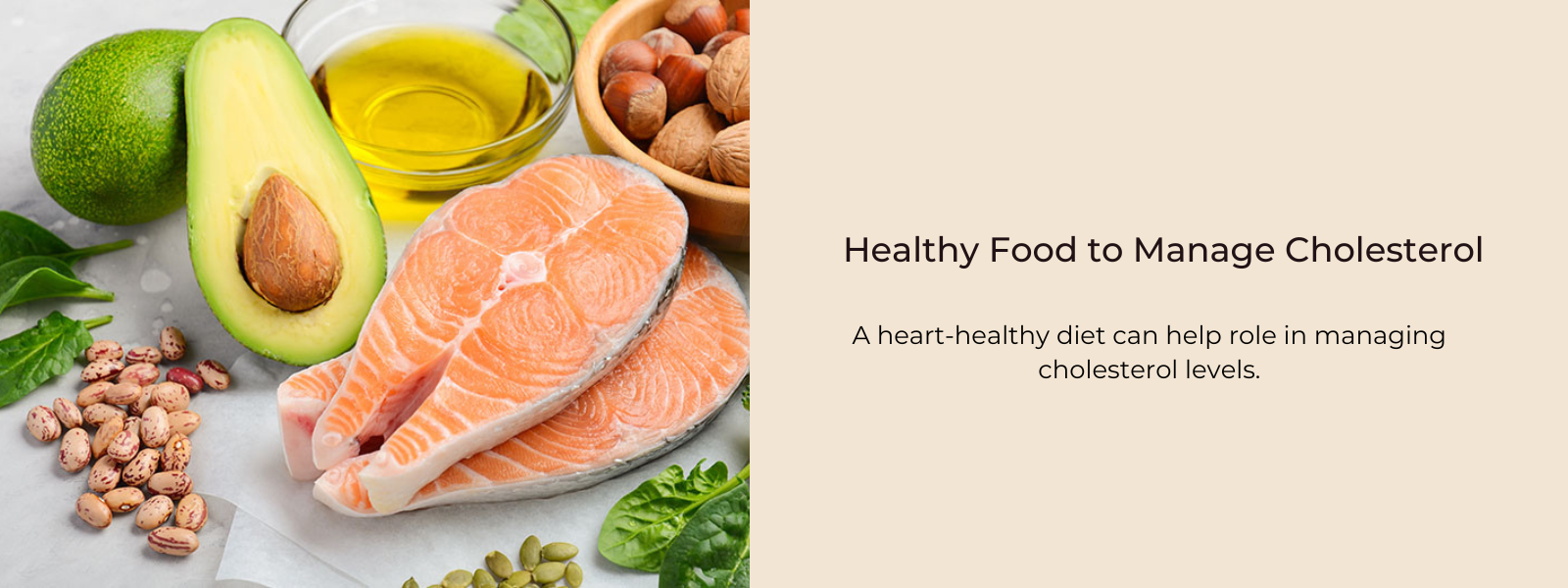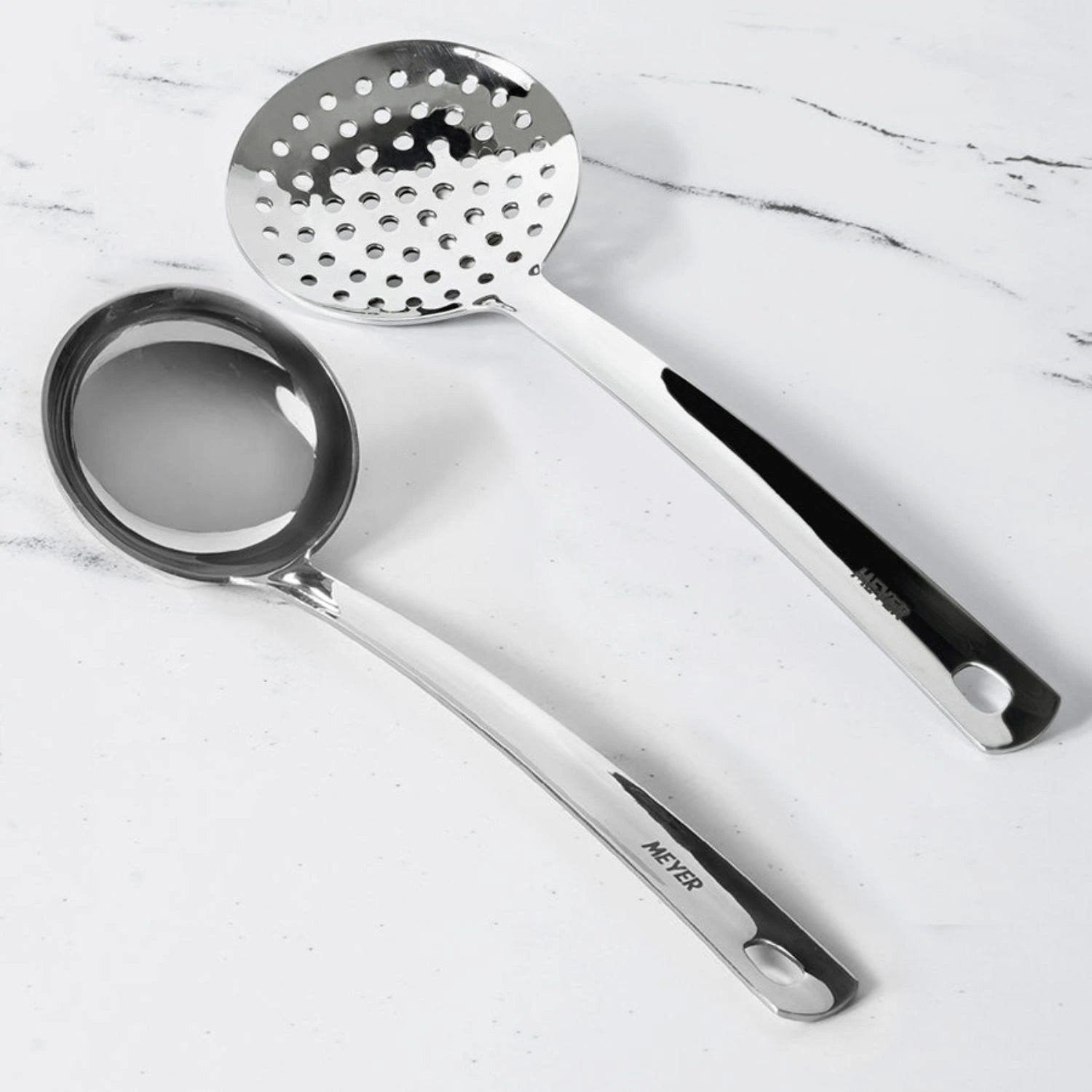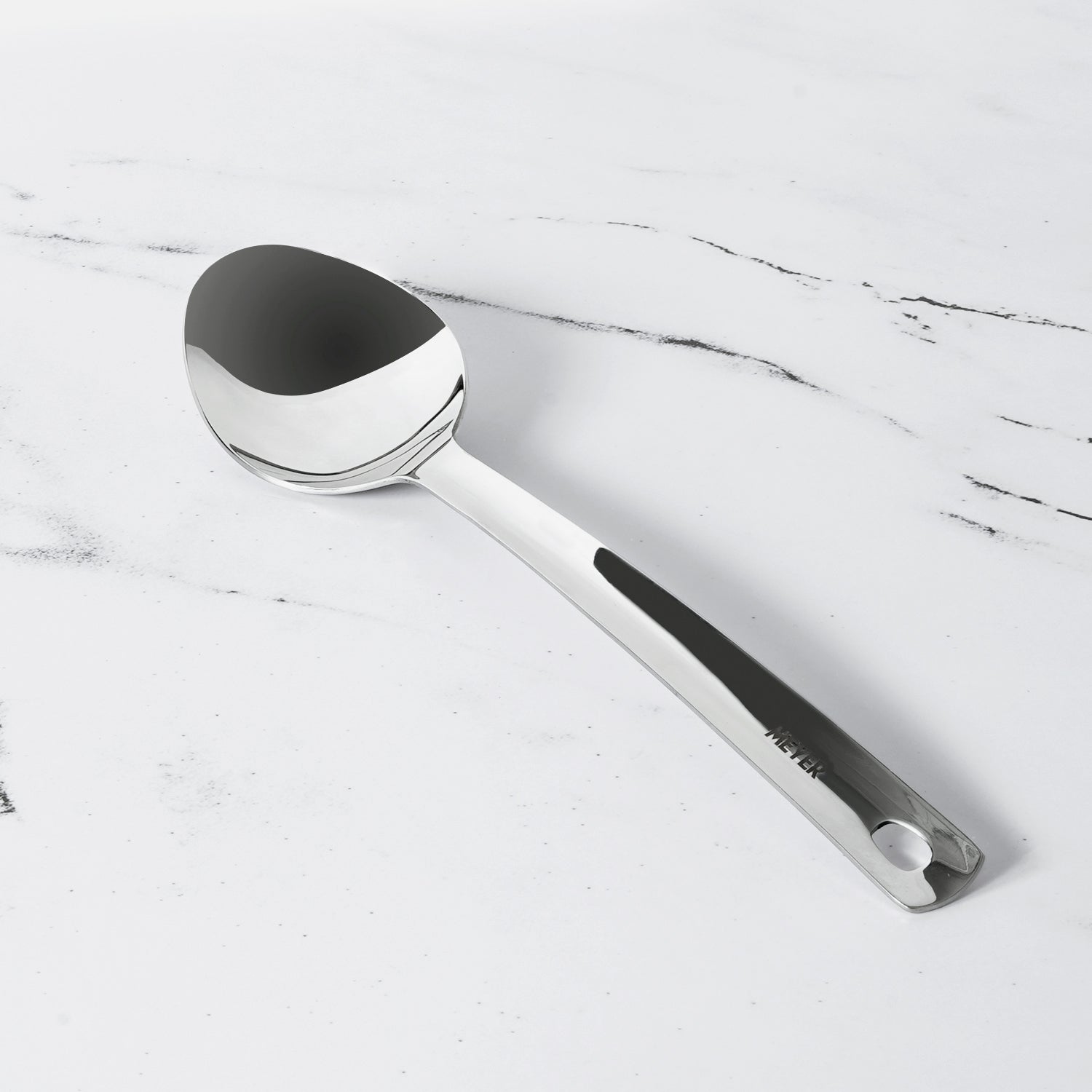A heart-healthy diet plays a crucial role in managing cholesterol levels, particularly LDL (low-density lipoprotein) cholesterol, which is linked to heart disease risk. Incorporating certain foods into your diet can help lower LDL cholesterol levels and promote cardiovascular health. These include foods rich in soluble fiber, such as oats, barley, legumes, fruits, and vegetables, which can help remove cholesterol from the body. Healthy fats found in sources like olive oil, avocados, nuts, and fatty fish provide essential nutrients and may help lower LDL cholesterol when they replace saturated and trans fats in the diet. Plant sterols and stanols, found in fortified foods like margarine and yogurt drinks, can also reduce LDL cholesterol absorption. Additionally, foods high in omega-3 fatty acids, such as salmon, trout, flaxseeds, and walnuts, may help lower LDL cholesterol levels and reduce inflammation in the body. Adopting a balanced diet that includes these heart-healthy foods, along with regular exercise and other lifestyle modifications, can support overall cardiovascular health and lower the risk of heart disease.
Table of Contents
How Does Food Impact LDL Cholesterol?
Food plays a significant role in determining cholesterol levels in the body, particularly LDL (low-density lipoprotein) cholesterol, often referred to as "bad" cholesterol. Here's how different components of food can impact cholesterol levels:
- Dietary Fats:
- Saturated Fats: Foods high in saturated fats, such as fatty meats, full-fat dairy products, butter, and coconut oil, can increase LDL cholesterol levels. Saturated fats raise LDL cholesterol more than any other type of fat.
- Trans Fats: Trans fats are artificially produced fats found in many processed foods, including fried foods, baked goods, and margarine. Trans fats not only raise LDL cholesterol levels but also lower HDL (high-density lipoprotein) cholesterol, which is considered "good" cholesterol.
- Monounsaturated Fats: Foods rich in monounsaturated fats, such as olive oil, avocados, and nuts, can help lower LDL cholesterol levels when they replace foods high in saturated and trans fats in the diet.
- Polyunsaturated Fats: Polyunsaturated fats, found in sources like fatty fish (salmon, trout), flaxseeds, and walnuts, can also help lower LDL cholesterol levels, especially when they replace saturated and trans fats in the diet.
- Dietary Cholesterol:
- While dietary cholesterol from sources like eggs, shellfish, and organ meats was once thought to significantly impact blood cholesterol levels, research has shown that its effect is relatively modest for most people. Dietary cholesterol has less of an impact on blood cholesterol levels than saturated and trans fats.
- However, individuals with specific conditions like familial hypercholesterolemia may be more sensitive to dietary cholesterol and may need to monitor their intake more closely.
- Fiber:
- Soluble fiber, found in foods like oats, barley, legumes, fruits, and vegetables, can help lower LDL cholesterol levels by binding to cholesterol in the digestive tract and removing it from the body. Increasing soluble fiber intake is often recommended as part of a heart-healthy diet.
- Insoluble fiber, found in foods like whole grains, nuts, seeds, and vegetables, may also have modest effects on cholesterol levels and overall heart health.
- Plant Sterols and Stanols:
- Plant sterols and stanols are compounds found naturally in plants that have a structure similar to cholesterol. Consuming foods fortified with plant sterols or stanols, such as certain margarines, orange juice, and yogurt drinks, can help lower LDL cholesterol levels by blocking the absorption of cholesterol in the intestines.
- Antioxidants and Phytochemicals:
- Certain antioxidants and phytochemicals found in fruits, vegetables, and other plant-based foods may also contribute to heart health by reducing inflammation and oxidative stress, which are associated with cardiovascular disease.
Best Food Options To Lower LDL Cholesterol:
Lowering LDL cholesterol levels through dietary choices is a cornerstone of heart health. Here's a detailed guide to foods that can help lower LDL cholesterol:
- Soluble Fiber-Rich Foods: Soluble fiber forms a gel-like substance in the digestive tract, which helps to bind cholesterol and prevent its absorption into the bloodstream. Foods high in soluble fiber include oats, oat bran, barley, legumes (beans, lentils, chickpeas), fruits (apples, oranges, strawberries, bananas), and vegetables (brussels sprouts, carrots, broccoli).
- Healthy Fats: Incorporating healthy fats into your diet can help improve cholesterol levels. Focus on sources of monounsaturated and polyunsaturated fats, such as olive oil, avocado, nuts (almonds, walnuts, pistachios), seeds (flaxseeds, chia seeds), and fatty fish (salmon, mackerel, trout). These fats can help raise HDL cholesterol levels while lowering LDL cholesterol.
- Foods Rich in Omega-3 Fatty Acids: Omega-3 fatty acids have been shown to reduce inflammation and lower LDL cholesterol levels. Fatty fish like salmon, mackerel, sardines, and trout are excellent sources of omega-3s. For those who don't consume fish regularly, flaxseeds, chia seeds, walnuts, and algae-based supplements are alternative sources.
- Plant Sterols and Stanols: These compounds are naturally found in plants and have been shown to lower LDL cholesterol levels by blocking its absorption in the intestines. Foods fortified with plant sterols or stanols, such as certain margarines, orange juice, and yogurt drinks, can be effective additions to a heart-healthy diet.
- Soy Products: Soybeans and soy-based products like tofu, tempeh, and soy milk contain plant compounds called phytosterols, which can help lower LDL cholesterol levels. Additionally, soy protein may have cholesterol-lowering effects when substituted for animal protein in the diet.
- Nuts: Nuts are rich in healthy fats, fiber, and plant sterols, all of which contribute to improved cholesterol levels. Almonds, walnuts, pistachios, and peanuts have been specifically associated with lower LDL cholesterol levels when consumed as part of a balanced diet.
- Garlic: Garlic contains compounds that may help lower LDL cholesterol levels and reduce the risk of heart disease. Incorporating fresh garlic into your cooking or taking garlic supplements may provide some cholesterol-lowering benefits.
- Green Tea: Regular consumption of green tea has been linked to lower LDL cholesterol levels due to its antioxidant properties. Aim for several cups of green tea per day to reap its potential benefits for heart health.
How To Consume Food To Maintain Cholesterol Level?
Maintaining healthy cholesterol levels involves not only choosing the right foods but also paying attention to portion sizes, cooking methods, and overall dietary patterns. Here's a guide on how to consume food to help maintain cholesterol levels:
- Emphasize Whole Foods:
- Base your diet on whole, minimally processed foods like fruits, vegetables, whole grains, lean proteins, and healthy fats. These foods are naturally low in saturated and trans fats and rich in nutrients and fiber, which can help support healthy cholesterol levels.
- Choose Healthy Fats:
- Incorporate sources of monounsaturated and polyunsaturated fats into your diet, such as olive oil, avocados, nuts, seeds, and fatty fish. Limit intake of foods high in saturated and trans fats, such as red meat, full-fat dairy products, fried foods, and commercially baked goods.
- Increase Soluble Fiber Intake:
- Consume plenty of foods rich in soluble fiber, such as oats, barley, legumes, fruits, and vegetables. Aim for at least 25-30 grams of fiber per day, as soluble fiber helps lower LDL cholesterol levels by binding to cholesterol in the digestive tract and removing it from the body.
- Watch Portion Sizes:
- Pay attention to portion sizes to avoid overeating, which can lead to weight gain and negatively impact cholesterol levels. Use measuring cups, spoons, or visual cues to help control portion sizes, especially for calorie-dense foods like nuts, seeds, and oils.
- Cook Healthily:
- Choose heart-healthy cooking methods like baking, grilling, steaming, or sautéing with minimal added fats. Avoid deep-frying and heavily buttered or creamy dishes, which can add unnecessary saturated fats and calories.
- Include Plant Sterols and Stanols:
- Incorporate foods fortified with plant sterols or stanols into your diet, such as certain margarines, orange juice, and yogurt drinks. These compounds can help lower LDL cholesterol levels by blocking its absorption in the intestines.
- Limit Added Sugars and Refined Carbohydrates:
- Minimize intake of foods and beverages high in added sugars and refined carbohydrates, such as sugary drinks, sweets, white bread, and pastries. These foods can contribute to weight gain, insulin resistance, and adverse changes in lipid profiles.
- Maintain a Healthy Weight:
- Strive to achieve and maintain a healthy weight through a balanced diet and regular physical activity. Losing excess weight, particularly abdominal fat, can help improve cholesterol levels and overall cardiovascular health.
- Be Mindful of Alcohol Consumption:
- Limit alcohol intake to moderate levels, which is generally defined as up to one drink per day for women and up to two drinks per day for men. Excessive alcohol consumption can raise triglyceride levels and contribute to weight gain.
- Stay Hydrated:
- Drink plenty of water throughout the day to stay hydrated. Adequate hydration supports overall health and may help optimize cholesterol metabolism.
Conclusion:
Incorporating these heart-healthy foods into your diet, along with other lifestyle modifications such as regular exercise and maintaining a healthy weight, can help lower LDL cholesterol levels and reduce the risk of cardiovascular disease.











Leave a comment